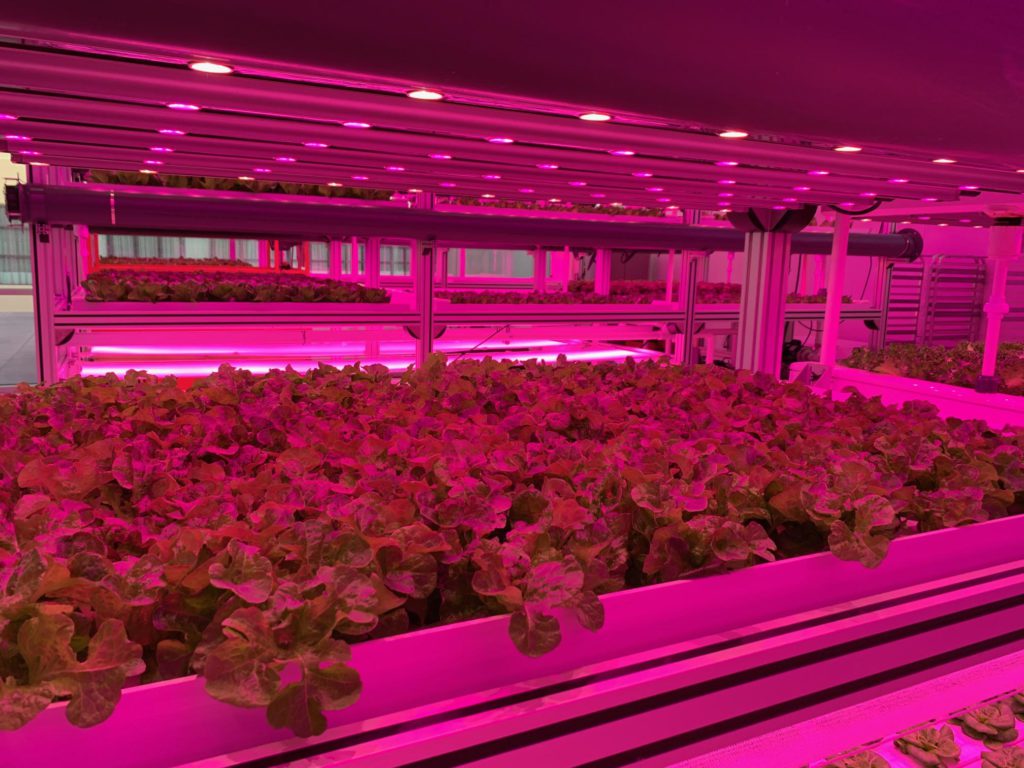Mar 15, 2021Kalera’s newest vertical farming facility to open in St. Paul, Minnesota
Kalera, a U.S. vertical farming company an a leader in plant science for producing high-quality produce in controlled environments, announced March 15 the purchase of a facility in St. Paul, Minnesota which it will convert to a vertical farming facility.
According to a news release, Kalera’s Minnesota location is the eighth facility it has announced, making it one of the fastest growing vertical farming companies in the United States. This announcement comes on the heels of the news of Kalera’s appointment of Sonny Perdue, former Secretary of Agriculture and Maria Sastre to the Board of Directors, as well as its acquisition of Vindara, the first company to develop seeds specifically designed for use in vertical indoor farm environments as well as other controlled environment agriculture (CEA) farming methods.
With millions of heads of lettuce to be grown per year, Kalera’s St. Paul facility will provide a source of fresh, non-GMO, clean, living lettuces and microgreens to retailers, restaurants and other customers. Kalera’s location in the heart of the city will shorten travel time for greens from days to mere hours, preserving nutrients, freshness, and flavor. The facility will also generate approximately 70 jobs upon opening.
“I’m proud to be welcoming Kalera to St. Paul and the W. 7th neighborhood,” said City Councilmember Rebecca Noecker, who represents St. Paul’s Ward 2. “The facility is not only bringing millions of dollars in investment into the community but is also providing jobs and importantly, increasing access to fresh, non-GMO, clean, locally grown produce.”
Kalera currently operates two growing facilities in Orlando and last week started operations in its newest and largest facility to date in Atlanta and is building facilities in Houston, Denver, Columbus, Seattle and Hawaii. Kalera is the only controlled environment agriculture company with coast-to-coast facilities being constructed, offering grocers, restaurants, theme parks, airports and other businesses nationwide reliable access to locally grown clean, safe, nutritious, price-stable, long-lasting greens. Once all of these farms are operational, the total projected yield is several tens of millions of heads of lettuce per year, or the equivalent of over 1,000 acres of traditional field farms. Kalera uses a closed-loop irrigation system which enables its plants to grow while consuming 95% less water compared to field farming.
“Minnesotans are all too familiar with the limitations of a challenging climate,” said Daniel Malechuk, Kalera CEO. “They also take great pride in local accomplishments, so we are extremely excited to facilitate this opportunity for Minnesotans to have fresh, high quality produce year-round, grown by the locals for the locals.”
Final project commitments, including jobs and capital investment, are contingent on final approval of state incentives.
Kalera is a technology driven vertical farming company with unique growing methods combining optimized nutrients and light recipes, precise environmental controls, and clean room standards to produce safe, highly nutritious, pesticide-free, non-GMO vegetables with consistently high quality and longer shelf life year round. The company’s high-yield, automated, data-driven hydroponic production facilities have been designed for rapid rollout with industry-leading payback times to grow vegetables faster, cleaner, at a lower cost, and with less environmental impact.
With millions of heads of lettuce to be grown per year, Kalera’s St. Paul facility will provide a source of fresh, non-GMO, clean, living lettuces and microgreens to retailers, restaurants and other customers. Photo: Kalera

















